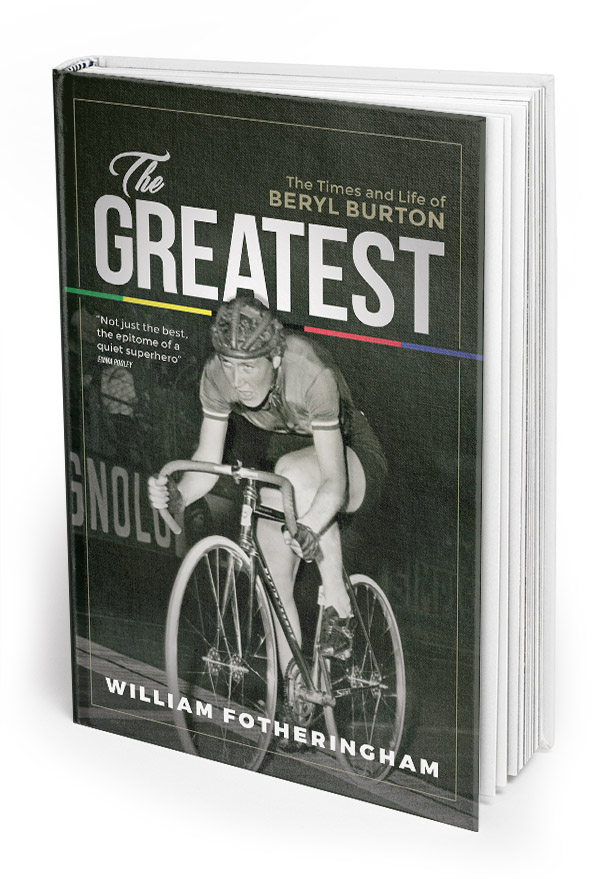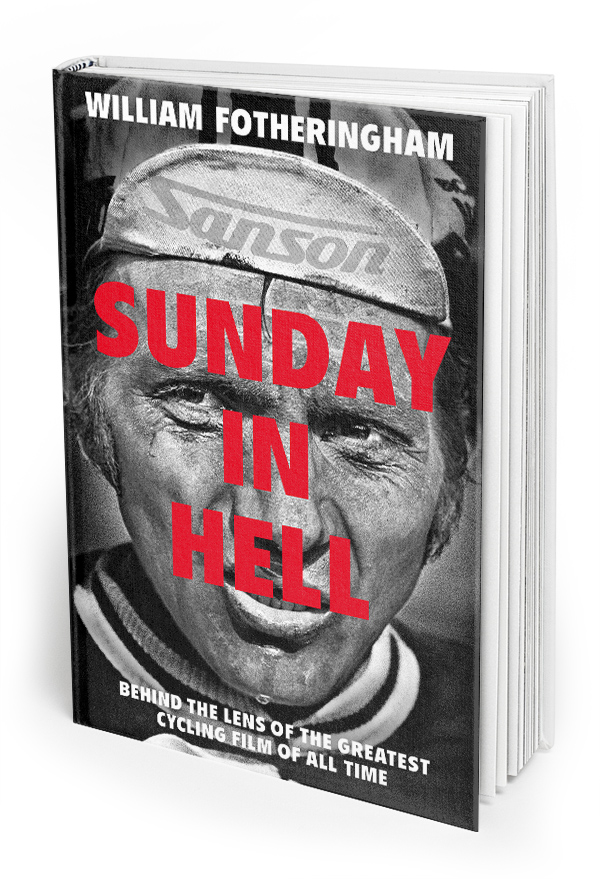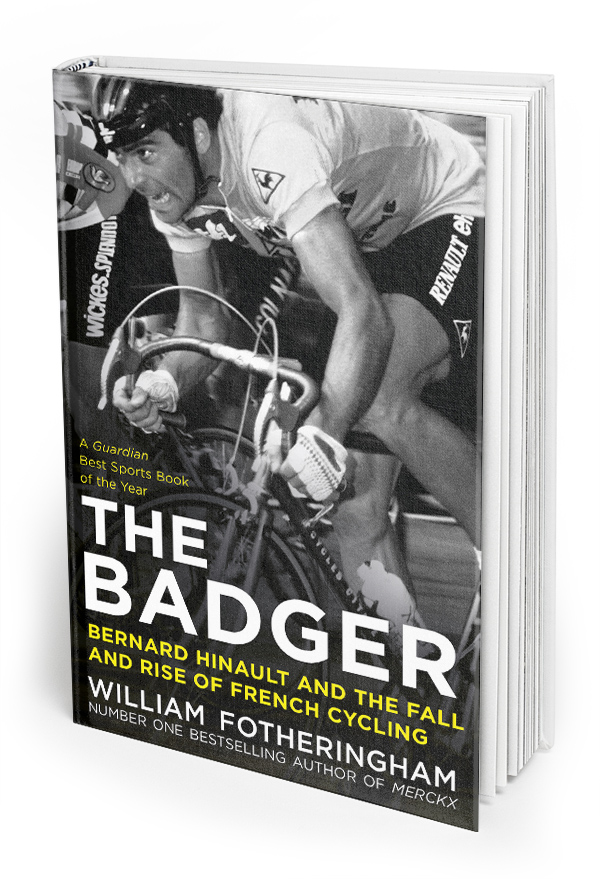Recent Publications

The Greatest: The Times and Life of Beryl Burton: A prolific world and national champion on road and track, whose career lasted more than 25 years, Burton dominated women’s racing in the UK during the 1960s and 1970s, taking almost 100 national titles. Between 1959 and 1967 she took seven world titles, including the pursuit and road race double in 1960.
She not only spoke out for equality in cycle racing but also challenged stereotypes by the way she rode: she competed on equal terms with men, and managed an unheard-of feat in setting an absolute British record for distance covered over 12 hours in 1967. Burton died in 1996 but remains a household name in British cycling and in her native Yorkshire.
This new biography sets out to tell Burton’s story in detail for the first time, exploring the people and places behind the legend, putting her story in the context of half a century in which women who wanted to race bikes were held back by the men who ran the sport.
£1 per copy sold will be donated to the Dave Rayner fund.

Sunday in Hell: Behind the Lens of the Greatest Cycling Film of all Time: In 1976 a little-known Danish film maker, Jorgen Leth, embarked on an ambitious project to capture the spirit of cycling’s toughest and cruellest Classic, Paris-Roubaix, in a new and epic way. The resulting film would change Leth’s career and would radically change the way cycling was seen on screen, spurring the sport into the modern era.
Leth planned to show every moment of significance during the day, to portray its heroes – Roger de Vlaeminck, Eddy Merckx, Freddy Maertens – as mythical figures, and to use radical techniques such as the helicopter mounted Wescam. This is, if you like, my biography of the film – how it was conceived, how it was made, what happened on the day, who took those dramatic images – my favourite is Walter Godefroot’s watch – and wrote that epic soundtrack, and what became of those larger than life figures.
Plus, I look at the greatest Tour de France film that never happened, and find out, crucially, where was that cafe with the hallucinogenic wallpaper and the drunken expert fans…

The Badger: Bernard Hinault and the Fall and Rise of French Cycling: Thirty five years after France last won its home Tour, this is the biography of the man who remains the last French victor, Bernard Hinault.
The Badger is one of the four men who have won the Tour five times, but there is far more to him than that: Hinault was the last of cycling’s great all-round champions, a man capable of winning Liege-Bastogne-Liege in a snowstorm or dominating a world championship, as he did in 1980. He remains possibly the most combative of cyclists, a man capable of punching a mob of strikers (Paris-Nice 1984), attacking the Tour de France just for the sheer hell of it, as he did on the final stage of the 1979 race, or getting mixed up in a bunch sprint simply because he could.
He was also the champion of my teenage years, the rider whose name was constantly in every magazine and who was on the front every time I watched the telly, which wasn’t often… Hinault himself contributed to this account of his career as did other contemporaries such as Robert Millar, Joop Zoetemelk and Stephen Roche, and the books brings the story up to date by looking into the reasons for French failure in La Grande Boucle in the last 30 years.
Share this page:


